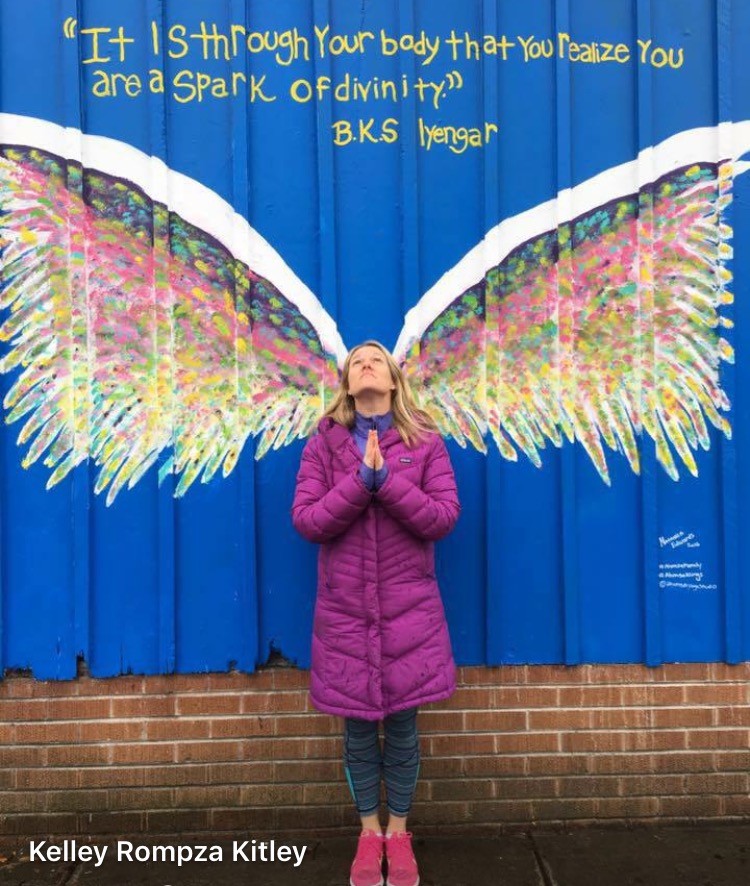It’s been nearly five years since I’ve had a sip of alcohol. But it wasn’t always this way.
My first drink—and subsequent blackout—was at 12 years old. I continued to drink throughout high school and college, resulting in some regrettable behavior—a ticket for public intoxication (resulting in a court date and community service) was just the icing on the cake. I’m known to be uninhibited without alcohol, so drinking intensified everything and made me unpredictable. It wasn’t that I couldn’t give up drinking, it’s that it was only temporary. I tapered my alcohol when I trained for races, during the 40 days of Lent, and for a January cleanse. The problem was, when I did decide to drink, I couldn’t stop.
I attended my first 12-step meeting at 22 but felt I couldn’t relate. My drinking wasn’t “that bad.” I had a lot of fun when I drank—one bad episode for every five fun ones was worth it to me. I was high-functioning, successful, and intelligent. I did my graduate studies in addiction. I thought I could think my way out of it with the right formula.
Exercise has always been a positive influence in my life. Sports provided discipline, commitment, and focus. I ran my first marathon at 20 and my body felt healthy and strong. My addictive personality kicked in and one race just wasn’t enough. I wanted to run faster and harder. I continued to compete with myself and qualified for the Boston Marathon (peeing in my pants to shave off every last second). I even competed in triathlons, a Half Ironwoman, and century bike rides.
What’s a sure way to convince yourself you don’t have a drinking problem? Waking up at 5 a.m. every Saturday for training runs. Being productive and accomplished gave me a free pass to reward myself and celebrate into the wee hours of the morning. I tried to manage and control my drinking via my “work hard, play hard” motto, but then came my early 30s and four small children. My husband often worked at night, which left me flying solo with the kids. I’d laugh with my other mom-friends about drinking a bottle of wine to cope with the stress. What I didn’t share was that I hated who I was when I drank. And I certainly didn’t tell them about the blackouts and intense anxiety that came with it.
My relief came when a friend suggested attending a women’s 12-step meeting with her. As a cognitive behavioral therapist myself, I quickly realized what I needed to do. So when I left the meeting that day, I made an hour-by-hour plan. Exercise was my top priority, but I was careful about making fitness an exercise in stress relief.
So I canceled my CrossFit membership and went back to basics. I had a bike in my garage from 10 years of teaching Spin classes, so I made a playlist with Pink and Florence and the Machine, clipped in my shoes, moved with the music, and sang so loud I could feel the vibration deep within my soul. I cried, I sweat, and I felt empowered to keep going. I also started attending Bikram yoga sessions a few times a week. I locked eyes with myself as I stood in front of the mirror and moved through the poses. After months of recovery, I started liking myself again. It was cleansing, meditative, and was the total reset I needed.
Gaining real control over my life was the biggest win, but I noticed a bunch of other amazing perks when I went sans alcohol, too.
Clarity: The fog is gone. I’m more relaxed, free, and solid in my decision making. I ask for help and seek guidance. I realized I don’t have to do everything alone.
Better sleep: My head hits the pillow and instantly I’m asleep. I feel well-rested and eager to start the next day early. When I was drinking I’d often lie awake at night tossing and turning and worrying endlessly. I woke up with dread, headaches, and fear. Now I light a candle, run through my gratitude list and see the sunrise on my way to work the next morning.
Consistent mood: Alcohol may feel like a stimulant in small doses, but one drink too many and it quickly becomes obvious that it’s a depressant. My mood is now more consistent and predictable.
More mindful relationships: Sure, there are still moments of tension in my relationships with my family and friends, but the difference now is that I’m totally present for them. Because of that, now I try not to say things I regret. When I slip up, I quickly apologize and try to do better next time.
Better nutrition: I stopped making poor food choices late at night and started being more aware of regular mealtimes and enjoying healthy snacks. Admittedly, I did develop a major sweet tooth. (Maybe it’s my brain looking for other ways to up the serotonin level?)
In October 2016, I ran my first marathon in eight years. I ran for the Muscular Dystrophy Association to honor my friend who died due to complications of the disease, and I couldn’t be prouder. I enjoyed every step of the race, stopped to drink water, and hugged family and friends I saw along the way. Ditching alcohol and living my life one moment at a time is the best decision I’ve ever made.
Originally published at www.fitnessmagazine.com


